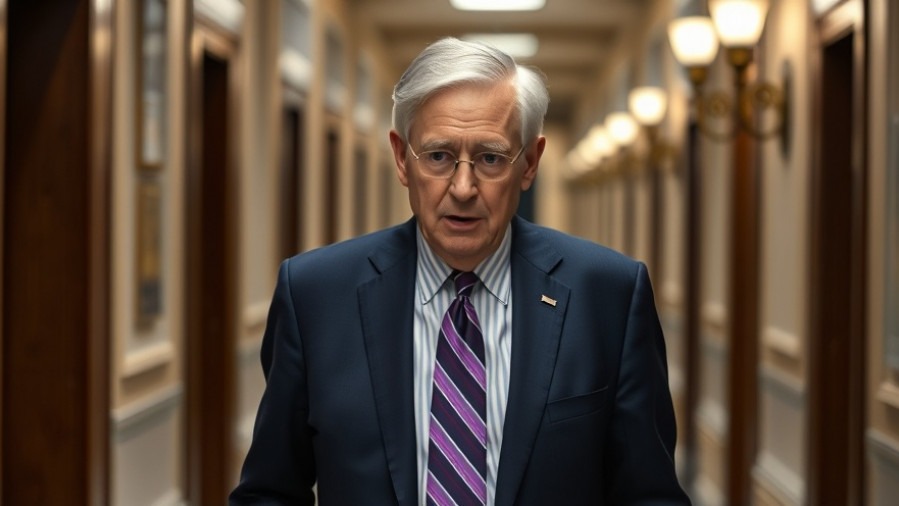
Sen. Mitch McConnell's Recent Fall Raises Health Questions for Senior Politicians
Senate Minority Leader Mitch McConnell was seen stumbling and falling in a hallway of the Russell Senate Office Building on October 16, 2025. This incident has reignited discussions regarding his health and the fitness of aging political leaders. Captured on video, McConnell appeared to trip while interacting with a member of the press who was asking him a challenging question about immigration enforcement. After regaining his balance, he waved to the camera, showed no visible injuries, and went on to participate in Senate votes later that day.
Context of the Incident
The 83-year-old senator's fall is not an isolated incident. Over the past few years, McConnell has faced several health-related episodes that have raised concerns among constituents and political observers alike. His prior health scares include a fall in February 2025 when he tumbled down a small flight of stairs after a confirmation vote. Additionally, in recent years, McConnell has experienced episodes where he seemingly freezes during public speaking, leading to widespread speculation about his cognitive and physical health.
The Political Implications of McConnell's Health
McConnell's health has become particularly relevant given his position as the longest-serving Senate party leader in U.S. history. As the leader of the Republican party in the Senate, the implications of his health issues extend beyond personal concern—they pose significant questions about leadership succession and the capacity of older politicians to fulfill demanding roles. The conservative ecosystem has noted that his fitness for office affects not only his party's strategy but also the ability to navigate key legislative matters.
Public Response and Partisan Critique
The incident has provoked mixed reactions. Activists from the Sunrise Movement confronted McConnell, condemning his immigration policies and expressing concern over the leadership style of older politicians. They conveyed that the inability to engage meaningfully with important issues may be symptomatic of broader age-related deficiencies in Congress. However, McConnell's spokesperson insisted that the senator is committed to his role and continues to fulfill his duties efficiently.
The Broader Conversation on Age and Leadership
This incident feeds into a larger debate regarding the age of elected officials in the U.S. Many citizens and commentators express concern that leaders in their 80s may not be able to adequately respond to modern challenges facing the nation. Such discussions often touch upon the need for generational change in often stagnant political hierarchies. The urgency for fresh perspectives and new voices is increasingly being echoed across political spectrums, as the younger generations call for reform and reconsideration of who holds the reins of governance.
Future Health Events to Watch
What remains to be seen is how these health incidents will affect not only Mitch McConnell's political future but also the Republican Party's leadership as it prepares for upcoming elections. With McConnell’s current term concluding in January 2027 and his decision not to seek re-election, the path is clear for potential successors to emerge. Voters can expect this conversation to continue as more candidates enter the fray, and health and vitality become crucial focuses for both parties.
Conclusion: Understanding the Importance of This Incident
The recent fall of Mitch McConnell serves as a reminder of the complex issues related to age, health, and political leadership. As constituents, it’s vital to engage critically with the health of our elected officials—thereby ensuring their ability to represent us effectively. For those concerned about maintaining robust representation in Congress, this incident can act as a catalyst for advocacy around age limits and leadership reforms, ensuring that our government remains responsive and effective for all citizens.
As we approach future elections, it’s essential to stay informed about our representatives’ health and capability to serve. Participate actively, remain informed, and consider the potential implications of age on political leadership in your area.
 Add Element
Add Element  Add Row
Add Row 



Write A Comment